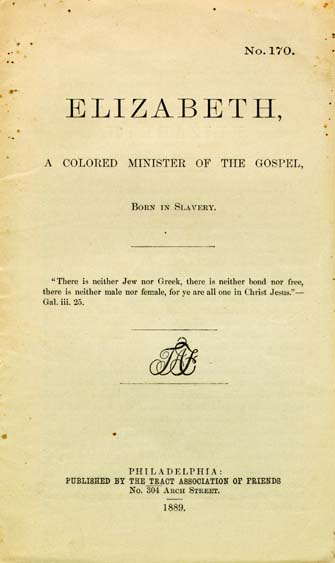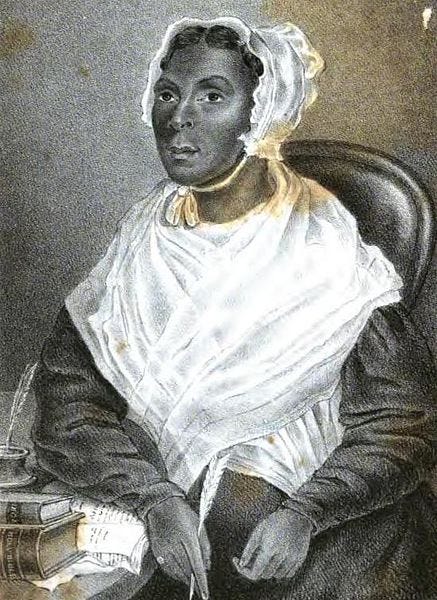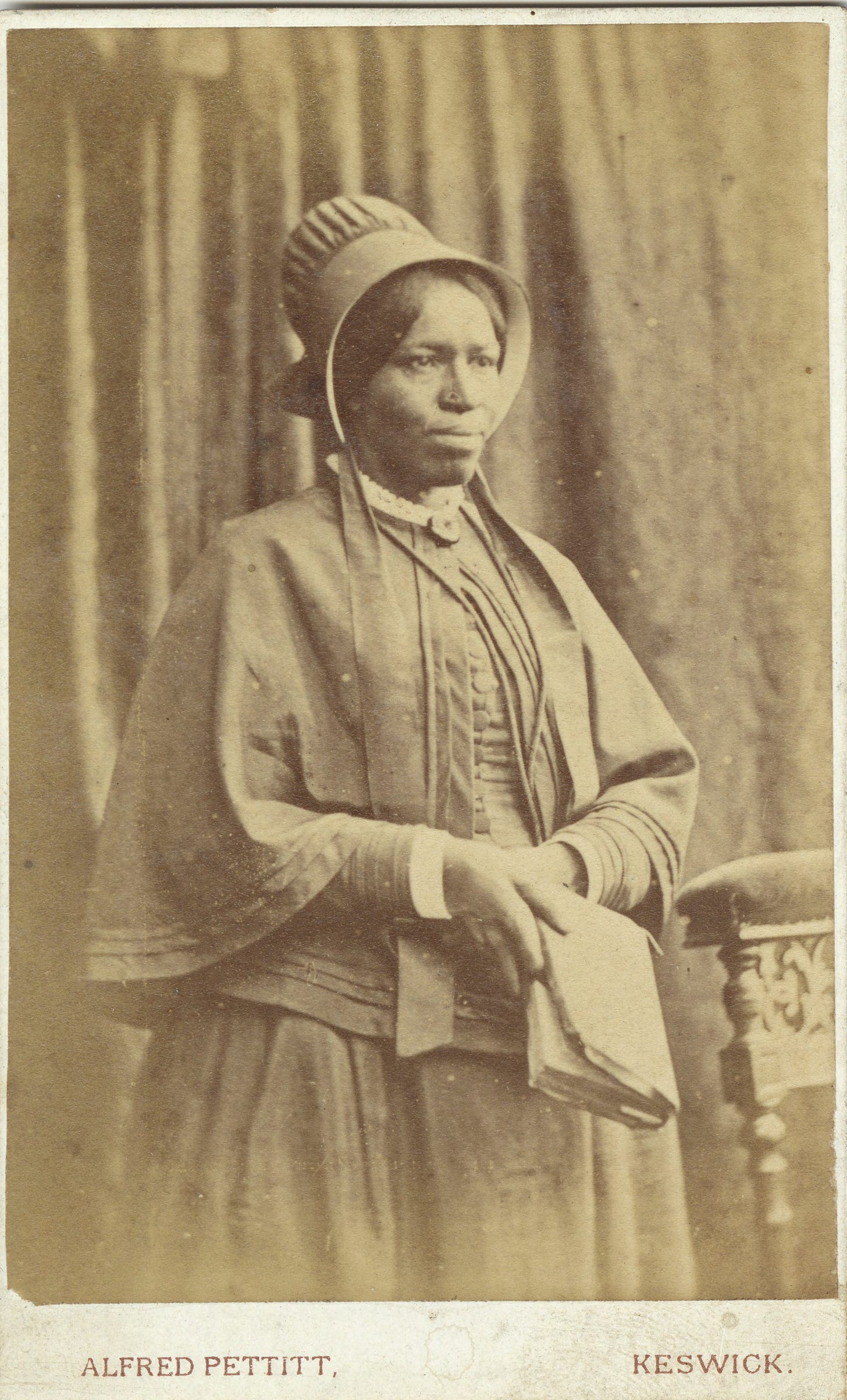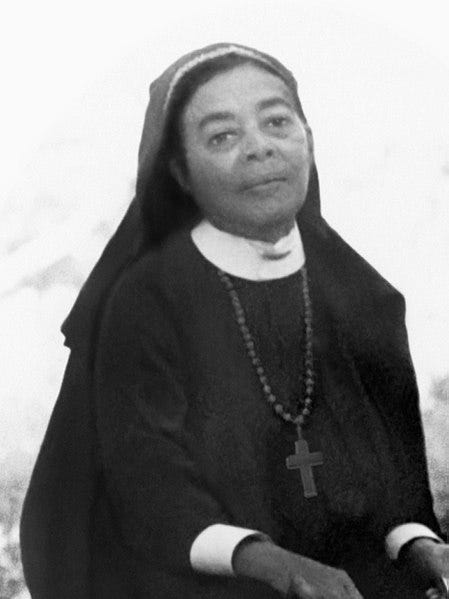FireFall Vol. 17: Black Women Testifying
Dr. Estrelda Y. Alexander on Azusa Street; Open Access Autobiographies of African American Women Preachers in the 1800s; Deaconess Anna Ellison Butler Alexander
Welcome to FireFall!
If you missed it, last week we began the celebration the voices of Black women leading the church in history and in the present, including African American women.
Since FireFall began last October, the calling and leadership of Black women have been a regular part of efforts to amplify the voices of women, so visit the archives to learn more about the ministry of women like 19th century Methodist missionary Susan Angeline Collins; Nenilava, Prophetess of Madagascar; Afua Kuma’s Jesus in the Deep Forest, and more.
This week, we’re celebrating the testimony of African American women whose calling and leadership shaped the church in the 19th and 20th centuries.
Watch: Dr. Estrelda Y. Alexander on “The Women of Azusa Street” at Regent University Library, 2006
This lecture from Dr. Estrelda Alexander is fascinating - especially in juxtaposition with the autobiographies of women preachers in the 1800s.
Because when it came to the women of the Azusa Street revival, a challenge emerges: Dr. Alexander explains, “they had this very self-demeaning posture, they didn’t write about themselves. So even when Crawford writes her autobiography, she writes herself out of it, she’s not important to her own autobiography, because it’s all about God…it’s good for God, it’s not good for historians! When you go back and try to find these women, you can’t find them because they have written themselves out of their own history. It’s very difficult.”
Without reading too much into potential differences in theological emphasis, I’ll simply say that I’m glad that many of the women preachers of the 1800s, including African American women, kept themselves in their own autobiographies.
Open Access 18th and 19th Century Autobiographies: Old Elizabeth, Jarena Lee, Sojourner Truth, Zilpha Elaw, Amanda Berry Smith, Rev. Julia Foote
So many old books are now available “open access” - digitized and in the public domain, free to read - online. So you don’t have to have access to an academic library to read them. This is fantastic.
The autobiographies linked below are all by African American women who preached. Many other Black women were preachers or missionaries, but not all of them wrote autobiographies, and in the case of at least one woman, we have her portrait, but it took decades for someone to stumble on an article she wrote at one point - a copy happened to be folded in a family Bible.
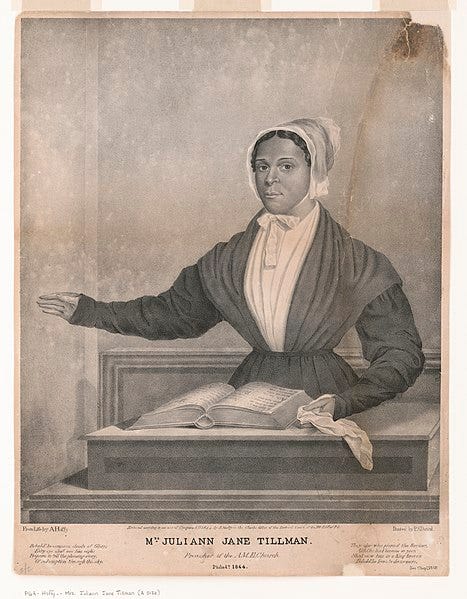
This isn’t a comprehensive list of autobiographies, but there’s plenty here to keep you reading for a while.
Old Elizabeth (ca 1766-1866) was a formerly enslaved woman born in Maryland who began speaking in small groups and gatherings and began preaching and traveling more and more, eventually leaving the eastern United States and visiting Canada and Michigan. Her short but compelling autobiography available online here was dictated toward the end of her life.
Though doubts plagued her as she sought to follow the Holy Spirit in the face of resistance, her reflections include snapshots like this:
“As I travelled along through the land, I was led at different times to converse with white men who were by profession ministers of the gospel. Many of them, up and down, confessed they did not believe in revelation, which gave me to see that men were sent forth as ministers without Christ's authority. In a conversation with one of these, he said, ‘You think you have these things by revelation, but there has been no such thing as revelation since Christ's ascension.’ I asked him where the apostle John got his revelation while he was in the Isle of Patmos. With this, he rose up and left me, and I said in my spirit, got thee behind me Satan.”
Zilpha Elaw (c 1790-1873), a Methodist holiness preacher from Pennsylvania, traveled preaching in the early 1800’s before eventually going to England to continue her ministry and preaching. Her writing includes this reflection:
“Ere this work meets the eye of the public, I shall have sojourned in England five years: and I am justified in saying, that my God hath made my ministry a blessing to hundered of persons; and many who were living in sin and darkness before they saw my coloured face, have risen up to praise the Lord, for having sent me to preach His Gospel on the shores of Britain; numbers who had been reared to maturity, and were resident in localities plentifully furnished with places of worship and ministers of the gospel, and had scarcely heard a sermon in their lives, were attracted to hear the coloured female preacher, were inclosed in the gospel net, and are now walking in the commandments and ordinances of the Lord. I have travelled in several parts of England, and I thank God He has given me some spiritual children in every place wherein I have laboured.”
Her autobiography is available open access online here.
Zilpha Elaw crossed paths with Jarena Lee (b. 1783), the first woman authorized to preach in the AME Church in 1819, which was about ten years after she first felt called. She became the first African American woman to publish an autobiography: her recollections can be found open access here.
She wrote, “very soon I began to call upon the Lord, to show me all that was in my heart, which was not according to his will.” Later, she wrote, “between four and five years after my sanctification…to my utter surprise there seemed to sound a voice which I thought I distinctly heard, and most certainly understand, which said to me, ‘go preach the Gospel!’ I immediately replied aloud, ‘no one will believe me.’ Again I listened, and again the voice seemed to say, ‘preach the Gospel; I will put words in your mouth, and will turn your enemies to become your friends.’”
Sojourner Truth (c. 1797-1883) is honored by The Episocopal Church on July 20th, and after her early years of enslavement, her wide-ranging roles giving voice to the abolitionist movement, womens’ rights movement, and Union army support, led to her being one of the rare women preachers of the 19th century who was invited to the White House. She felt called to preach, traveling to camp meetings and supporting these causes.
Her autobiography is available open access here.
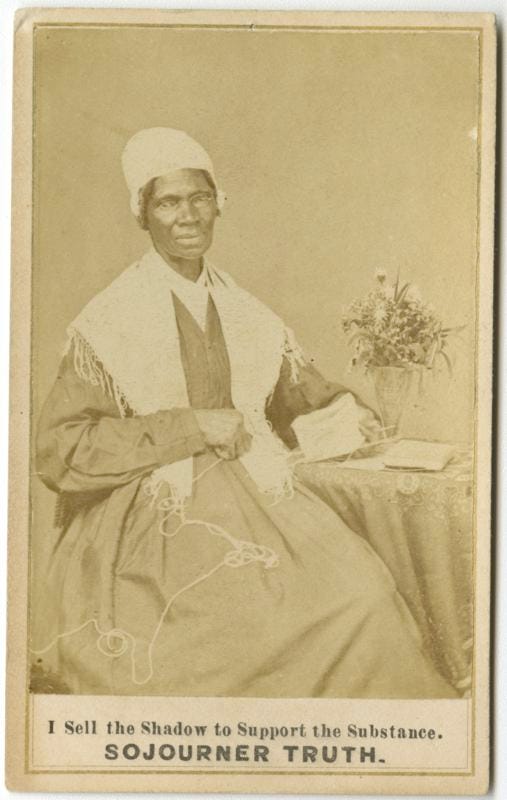
Rev. Julia Foote (1823-1901) preached around the eastern and midwest United States in churches and homes. She was the first woman ordained a deacon and the second ordained an elder in the AME Zion Church. Her autobiography A Brand Plucked from the Fire is available open access online here. She refused to speak when White Methodists were willing to hear her preach - but were not willing to welcome Black listeners into their pews. One potent account of a tremendous outpouring of the Holy Spirit in a small Ohio town mentions that for the first time in that place, the crowd was integrated.
(One of her comments amuses me: she reports that when the pastor of a Baptist congregation in Chillicothe, Ohio refused church members’ requests that he invite her to preach, the congregation subsequently ousted him.)
Amanda Berry Smith led a remarkable life; widowed twice, with only one child surviving to adulthood, she began preaching at holiness camp meetings, gaining the praise of bishops, and going on to travel to England, India, and Liberia, preaching on multiple continents before later settling in Illinois and opening an orphanage. When she grew elderly, a supporter provided her a house in Florida, and white clergymen served as her pallbearers when her remains were taken to the train to be transported for burial in Illinois.
She wrote, “This witness of God’s Spirit to my conversion has been what has held me amid all the storms of temptation and trial that I have passed through. O what an anchor it has been in time of storm.”
“I had learned more that had been of actual value to me as a preacher of Christian truth from Amanda Smith than from any other one person I had ever met.” - Methodist Episcopal Bishop J.M. Thoburn, who went on to write a book titled The Deaconess and her Vocation.
Her autobiography is available open access here and here.
Deaconess Anna Ellison Butler Alexander: The Sole African American Woman Consecrated Deaconess in The Episcopal Church
Deaconess Alexander (1865-1947) accomplished an extraordinary amount with very little support. The Episcopal Church now celebrates her with a lesser feast day, after the Diocese of Georgia named her a saint of Georgia and celebrated her on September 24th.
Passionate about education, she founded a mission, establishing a congregation in the face of opposition. Later, after leaving and returning, the Diocese asked her to revive the mission - but gave very little material help. She supported herself with sewing, continued to teach, and worked to raise funds. She was able to open a school and buy land for a church.
According to a former student, “This Church was her life, this school. She was very persuasive and went to all the meetings but she lived for this church. . . She influenced people all over the world . . . but here was her center. Everybody respected Deaconess Alexander . . . whites and blacks took off their hats to her.”
To learn much more about her life, visit here.
Thank you for subscribing to FireFall! Be sure to help amplify the voices of women - click links, open videos, listen to linked podcasts, and all the other actions that boost online resources by, for, and about women in church leadership! Every click, download, and view adds up!




